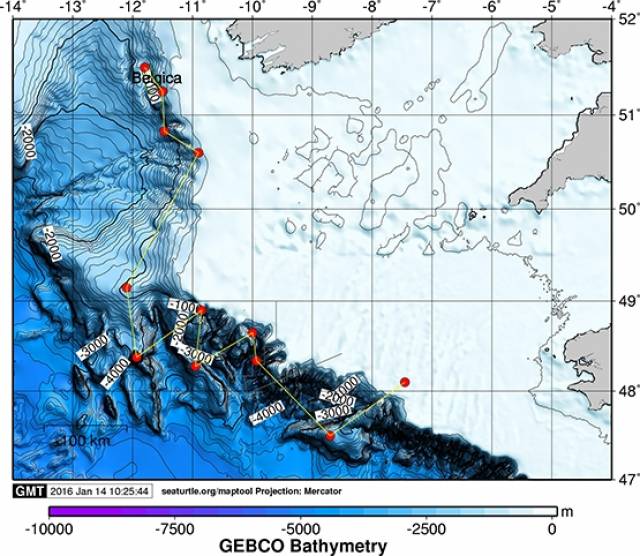A Life on the Edge survey voyage is an attempt to log the abundance of life on Irelands’ southern shelf edge in September. Irish Whale & Dolphin Gropup's Patrick Lyne is issuing an invitation to join this survey to assist with sailing and logging of sightings and acoustics. This is the fifth year of operation and for the first time Lyne says he will visit the Whittard canyon and adjacent areas in what is one of Europe’s most remote and seldom studied offshore areas.
'We are sailing from Castletownbere in West Cork to Camaret in Brittany and have a few limited places to fill in the outward or return legs', Lyne told Afloat.ie
'We would normally expect to encounter large numbers of fin whale and would hope to encounter blue whales, humpbacks, sperm whales and many other species. It is an opportunity to see many species in a rather short time, in an undisturbed and natural setting' he says.
The vessel is Jessy a 37ft–yacht and all details of the trip and costs can be found here or for further information contact Patrick Lyne at [email protected]






























































